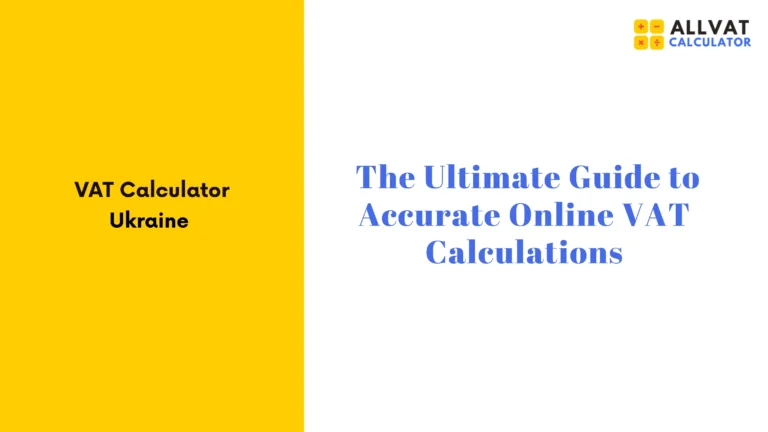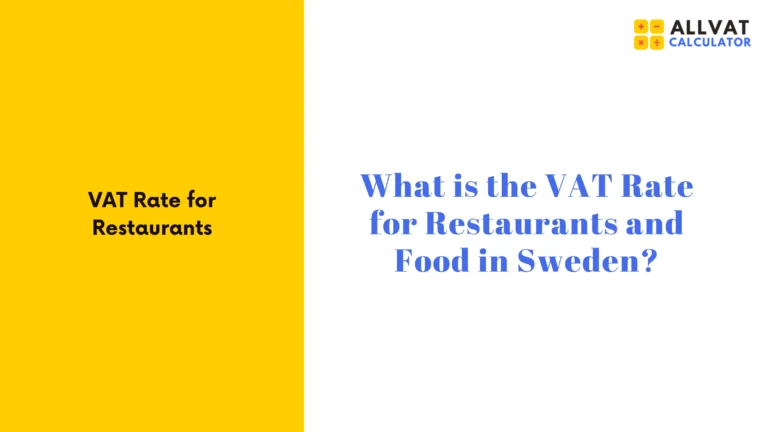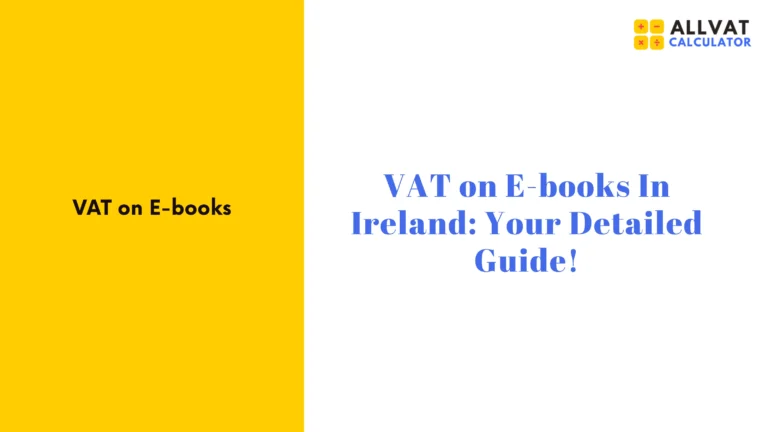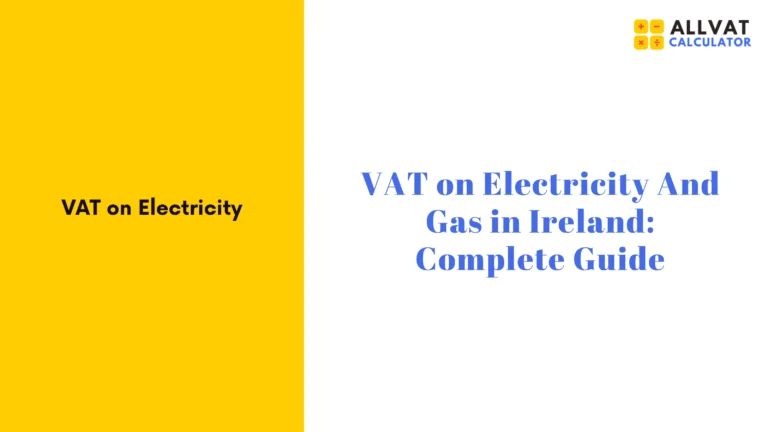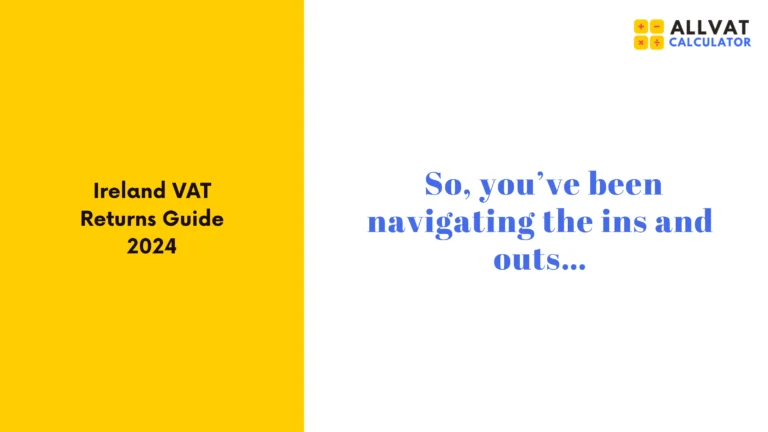Taxi Fare VAT Explained 2025
Is There VAT on Taxi Fares: How It Applies in 2025
Introduction
If you’re a passenger in a taxi in the UK understanding the VAT implications for the cost of your taxi fares could significantly affect your costs. Value added tax (VAT) is charged only on taxi fares when the driver is VAT registered. It is important to understand that taxi drivers who have less than PS90,000 of revenue in the course of a 12 month period do not need to sign up for VAT. If the driver is VAT-registered the VAT will be applicable to the fare.
Understanding VAT on Taxi Fares
In the UK The VAT registration threshold for VAT has been increased from PS85,000 to PS90,000. This will be effective as from April 1st 2024. Taxi drivers who have a turnover of less than PS90,000 aren’t required to register for VAT, and consequently, they are not able to be charged VAT for their service. On the other hand, taxi drivers who have more than this amount must be VAT registered and apply VAT to their taxi fares. Welcome to ICAEW.com
For companies, it’s crucial to know that VAT on taxi fares used for reasons of business can be reclaimed by presenting the proper VAT invoice. In addition, any additional expenses that are incurred by taxi rides, for example the loading of heavy bags, are normal-rated VAT and are also reclaimed.
VAT Exemptions for Taxi Services
Taxi drivers who earn less than PS90,000 over a 12 month period are not subject to VAT registration, and therefore aren’t able to be charged VAT for their service. This exemption is also applicable to self employed drivers that don’t have VAT registration, and, if they are operating as a taxi company and no VAT is added to their taxi fares.
For companies, VAT paid on taxi fares used for commercial purposes can be recovered by presenting an invoice for VAT that is valid which can help reduce the overall tax burden. However, taxi drivers who are self employed that are registered with VAT have to tax VAT when they provide services. In addition, companies with only employed drivers must tax VAT on the entire amount of their fare.
It’s important to note that although other costs like carrying heavy bags, or waiting at airports are VAT-free Gratuities and tips fall beyond the scope of VAT regulations.
Calculating VAT for Taxi Fare
For the calculation of VAT on taxi fares, make sure that the rates are set at 20% and you have a valid VAT receipt to use for the reimbursement of your business expenses that are tax deductible. Taxi drivers have to sign up with VAT if their income exceeds the threshold for VAT registration of PS90,000 within the course of a 12 month period in order for VAT to be charged in the price of their services.
If you’re registered as a VAT-registered taxi driver VAT is charged on taxi fares. It can also be claimed if the trip is for a purpose of business. It is important to remember that any additional expenses, such as carrying heavy bags or waiting at airports are tax-free for VAT and are also claimed.
The VAT rate that is standard on taxi rates is 20% and it is redeemed as a business expense that is tax-deductible with the proper VAT receipt.
Consumer Perspective on VAT and Taxis
For a customer, understanding the effect of the VAT tax on taxi fares is vital, especially due to recently issued High Court ruling on ride-hailing businesses that could result in increased prices. Here’s what you must understand from a customer’s point of view:
- Higher Costs: A High Court ruling may result in a 20 percent increase in the cost of taxis, which could impact your travel expenses.
- Tax Receipts If a taxi company is VAT-registered, make sure you obtain an VAT receipt for your journey. This permits you to reclaim VAT on your journey if it is for a business reason and could save you money.
- Tax Saving Tips Implementing tax-saving strategies can result in substantial savings when you use taxis for business reasons. Make sure you look into these options to get the most tax savings.
- Influence on Dynamics The possible rise in taxi fares could alter the dynamic between taxi drivers, businesses as well as consumers. Be aware of any changes to prices or services in the wake of the ruling.
VAT Obligations for Taxi Service Providers
Taxi service providers have to declare VAT when their revenue exceeds PS90,000. during a 12-month time frame. Once they have registered they must tax VAT for their service.
If the taxi driver isn’t VAT registered, then they can’t tax VAT at all on taxi fares. This means VAT can only be applied to taxi fares when the driver is VAT registered.
As a taxi service it is important to be aware that companies can claim tax on taxi fares provided that the trip is for business purposes and an official VAT invoice has been procured.
Taxi companies can also serve as representatives for drivers who are self-employed and, if the drivers do not have VAT registration there will be no VAT assessed on their services.
To understand better the VAT obligations of taxi-service providers look at these tables:
| Condition | VAT Status |
|---|---|
| Turnover is higher than PS90,000 over a 12 month period | You must sign up for VAT registration |
| Driver isn’t VAT registered. | There is no VAT charge on fares. |
| Business trip that is accompanied by a valid VAT invoice | VAT can be claimed back |
Knowing and adhering to the VAT requirements is crucial for taxi service companies in the transportation sector.
Impact of VAT on Transportation Expense
Understanding the effects taxation on transport costs will significantly impact your business’s financial plan and activities.
- Tax Registration Limit Taxi drivers who have a annual turnover of less than PS90,000 during the course of a 12 month period don’t have to sign up for VAT. This means that they don’t have to be charged VAT when they provide services to customers, which can impact the overall cost of the clients.
- Tax Reclaim If you’re a commercial enterprise and pay tax on taxi fare to meet reasons of business, you may claim back the VAT if you get an accurate VAT invoice and keep proper documentation. This can have a huge impact on your overall transportation costs as well as financial planning.
- Travel expenses Understanding the VAT implications of various travel expenses, including plane and train tickets, is essential for both people and companies. This allows for better planning and a possibility of reclaiming VAT, if applicable.
- Legal Issues Recent court rulings and VAT-related challenges to companies that provide ride-hailing services, such as Uber underscore the importance of knowing VAT obligations as well as the possible implications for taxi companies. Being aware of any changes to the regulations can assist in reducing the effects taxation on transport costs efficiently.
Reclaiming VAT on Taxi Fares
Reclaiming VAT on Taxi Fares
You are able to get VAT reimbursement on taxi fares used for business, by providing the official invoice for VAT to serve as proof. This could aid in reducing the tax burden and reduce your travel costs.
Keep a record of the tax-deductible taxi expenses to claim VAT promptly.
VAT Reclaim Process
To take advantage of VAT on taxi fares for business, follow the following steps:
- Request an invoice for VAT Be sure to get an VAT bill that’s acceptable from the taxi service.
- Check the purpose of the business trip. Confirm that the visit was carried out for an official commercial context.
- Uploading Documentation Upload the VAT invoice and any other receipts to the department of finance or directly the department at HM Revenue and Customs (HMRC).
- Keep track of all VAT claims Keep a precise track of each VAT claim to aid in compliance.
It is possible to think about using a corporate card to ease the process to track your travel expenses and claim VAT on business taxis.
The deduction of VAT on taxi fares helps reduce the tax burden for your company. It is therefore essential to follow the proper steps to reap this advantage.
Eligible Taxi Expenses
When you claim VAT on taxis employed for business, be certain to get an invoice for VAT as well as keep records of your taxi expense.
Taxi costs that are that can be refunded in VAT include:
- Only travel to business with a VAT registered driver and a VAT-registered receipt.
- Additional charges that are rated standard, for example waiting times or loading bags which weigh a lot.
The only exception is that expenses beyond the range of normal expenses such as gratuities and tips are not eligible to be reimbursed VAT.
It is crucial to keep in mind that taxi firms are able to charge VAT contingent on the state of employment of their drivers. This might be different for self-employed and employees of their own.
VAT Considerations for Taxi Business Owners
Take note of consequences of VAT on taxi company owners is vital to minimize taxes and maximizing refunds.
If you’re an owner of a taxi business and you are conscious of VAT concerns which could have a major impact on your company’s profitability. Here are some crucial points to consider:
- The minimum threshold to register VAT If your earnings exceed PS90000 You must join VAT registration. Taxi fares are boosted with VAT once your VAT registration is completed. Be sure that you comply with VAT registration requirements in order to avoid penalties.
- agent role In the event that your taxi company is acting in the role as an agent for self-employed drivers, who do not have a VAT registration There is no VAT applied to their fares. It’s crucial to understand the tax status of the drivers to know the taxes.
- Reception of VAT Taxes paid on taxi fares for business purposes can be claimed by showing the legitimate VAT bill. Keep meticulous documents of your taxi-related costs for business to assist in VAT refunds and reduce tax liabilities.
- ride-hailing Industry Effects The most recent High Court rulings now require companies operating ride-hailing services to estimate VAT based on profit margins. Keep up-to-date on the latest developments in the field since changes to VAT regulations may affect the taxi business.
Understanding these VAT concerns is essential to effectively controlling tax obligations and optimizing profits for your taxi business.
Tax-Saving Tips for Taxi Riders
As a taxi driver, you can make informed choices to save on taxi fares, by understanding the consequences of VAT and implementing techniques to reduce taxes.
One method of cutting the cost of a taxi is to determine if your taxi’s driver VAT-registered. In the case they are VAT registered the taxi driver could be able to increase the VAT cost of their fares. This could result in a price increase.
For business related reasons, you are able to claim tax on taxi fares, provided you have an invoice for VAT that is valid, and maintain records to claim tax. Utilizing a corporate card to cover taxi expenses will make it easier of keeping VAT documents.
It is crucial to know about potential VAT implications for additional costs, like big bags or long waiting times at the airport because they might be treated as normal in VAT.
In addition knowing about the constantly changing regulatory and legal environment and the latest rulings, which impact the VAT obligations of taxi companies helps in understanding the impact that could have on the price of fares as well as the tax obligation.
Tax-Saving Tips for Taxi Riders
- Check that the driver is VAT registered to determine the amount of VAT to be applied to the price of the trip.
- You can get VAT off of taxi fare for business travel by obtaining tax-exempt VAT receipts and retaining track of it for the claim of VAT.
- Use a corporate credit card to simplify record-keeping and tax-free reimbursement for taxi expenses.
- Be aware of the VAT-related implications for extra expenses, such as huge bags or long wait times waiting at airports. These can be classified as normal VAT.
VAT Comparison: Taxis Vs. Other Transport Modes
Let’s take a look at the tax implications of taxis as compared to other forms of transport.
Understanding the implications of VAT for various modes of transportation will allow you to make informed decisions about the price of your travel.
We’ll look at the tax nuances that exist between taxis, trains, planes and other types of transportation to see how VAT affects the overall cost of transport.
VAT on Taxi Fares
When evaluating the tax implications on taxi prices, its important to look at how they compare with taxes imposed on other transportation modes.
This chart will aid you in understanding the tax rate for taxis compared to other alternatives for transportation:
- Fare for taxis that is if you are using a taxi driver who is registered VAT, taxi rates will be assessed at the VAT rate which is normal (20 20%). If the driver isn’t VAT-registered, then there isn’t VAT charged.
- Train Prices In general the case of train fares, they do not count as VAT this means that there is no VAT assessed.
- Bus and Coach Services The majority of local coaches and buses are VAT-free, making them more affordable for tourists.
- Air Travel domestic flights in the UK generally tax-free, however international flights might be subject to tax regulations.
Knowing the impact of VAT of these taxes will enable you to make educated choices in regards to the costs of your transportation.
VAT Comparison With Other Modes
The ability to evaluate the tax rate of taxis with other transportation options provides valuable insight into taxes pertaining to different methods of transportation that are available to the passengers.
The UK in the United Kingdom, public transport services like buses, trams and trains are generally free of tax. This means that there is no VAT charged to tickets for passengers using these modes of transport.
Taxi rates are typically taxed at a standard rate of 20 percent. this could significantly affect the price of a journey in comparison to public transport.
When considering the VAT implications, it is essential to assess the tax advantages of public transportation which is VAT exempt, in comparison to the possibility of refunds for VAT for taxis.
Tax and Transport VAT
In assessing the costs of transport, it is essential to understand what VAT is different for various types of transport. This is what you need to keep in mind:
- Tax registration Taxi drivers must join VAT registration if their taxable earnings exceed PS90,000. within 12 months (as at the time when the tax threshold is set for the update to 2024-25).
- VAT Application The VAT charge is imposed for taxi fares in the event that an taxi operator and driver are VAT-registered. Taxi drivers who aren’t registered with VAT aren’t allowed to charge VAT on taxi fare.
- Tax refunds are a way for businesses to get VAT refunds on taxi fare when the taxi trip is business-related and the VAT invoice is given. Be sure that the receipts for taxis include VAT, if you’re looking to claim it.
- TVA rate Standard VAT rates of 20% which applies to taxi fares that are tax-free and related services like waiting times and bag handling (but not tipping).
- Applications-Based Services In light of the recent rulings from justices, the ride-hailing applications such as Uber or Bolt have been required by law to pay taxes directly regardless of whether drivers are legally registered. The VAT will be already included in the cost of the app, as in addition to an official VAT receipt required to claim VAT.
FAQs About VAT on Taxi Fares in the UK
Does there have to be VAT on Uber Taxi Do you know. Uber fares in UK are VAT-inclusive. The application calculates VAT and applies directly, which means that the amount you pay is VAT-inclusive.
What is the best way to get back VAT for taxi rides?
Yes if it was a business trip in which the cost was charged through a VAT-registered company. Keep all VAT receipts, and receipts for any other services, such as the waiting time or baggage loading.
Are you charged VAT on travel expenses? Typically it is. VAT is usually applicable to all kinds of travel that is private for business for business (e.g. taxis, taxis and hire vehicles. public transport, such as trains and buses are typically VAT-free.
Bolt have VAT? Bolt has VAT? Bolt Does it? If you’re an Bolt driver that is VAT registered and VAT is charged. Bolt has also begun charging VAT on charges that are processed by the app, just like Uber. You may ask for a VAT receipt if you plan to claim.
Conclusion
When you book a taxi ride, whether through an operator in your region or through an app for ride hailing, bear in your mind that VAT may or may not be applicable depending on the business’s tax Registered standing.
- In the event that you’re an enterprise user, ensure that you obtain VAT-related invoices to be able to claim the fares qualified.
- If you are an taxi operator or ride hailing operator, being up-to-date with taxes, thresholds, obligations, and VAT is vital to stay in compliance with your tax obligations, and to avoid paying penalties.
HTML0 Understanding how VAT applies to transportation will assist both the travelers as well as the providers control their tax burdens effectively.



